For the first time since the end of the Cold War, the next period of EU politics and policy-making will be dominated by security issues. Russia’s invasion of the Ukraine, and more recently hostilities in the Middle East, has brought an abrupt end to what some have called Europe’s post-1991 “peace holiday” and prompted the worst energy crisis since the 1970s. Meanwhile, the potential outcome of November’s US presidential election casts a long shadow over the future of NATO and the traditional umbrella protecting European borders and citizens. And lest we forget, COVID-19 exposed the world’s vulnerability to deadly viruses and the critical importance of health security within the bigger picture.
As a result, Europe has been forced into a deep rethink of its geopolitical place in the world, its external dependencies and its risk exposure in global supply chains, among others. In parallel, the political rhetoric of “open strategic autonomy” is being put to an existential test: can Europe truly become self-sufficient, not least in critical and emerging technology domains and sectors? If not, where should it turn for partnership and cooperation in an increasingly turbulent world? Will its new defence industrial plan prove to be a game-changer? And how will the status of non-military supply chains, such as food and pharmaceuticals, influence Europe’s future security and defence strategy?
The European Council (EUCO) has just set out its latest thinking on these questions, issuing an outline of a new mandate for the EU institutions through to 2029. Among the headlines is a clear recognition that security, defence readiness and autonomy will not be possible without a strong economic base. This in turn implies a coherent strategy and investment plan for the R&D and supply chains that will need to deliver future capabilities and novel technologies – a “whole-of-society” approach ranging from health, cybersecurity and AI, to (aero)space, energy and advanced materials.
Since COVID, approaches to this challenge have tended to be short-term and reactive – securing access to raw materials, stockpiling medicines, reshoring manufacturing facilities, and similar. Looking ahead, however, Europe will require a sustained wave of R&D to modernise current production systems, as well as breakthrough innovation across sectors that boosts competitiveness, preparedness and security levels. All of which raises a number of significant questions:
- How might the Commission optimise its coordination of security-related R&I moving forward, including dual-use research, given the number of directorates and domains involved?
- What novel approaches, including regulatory, could unleash the innovation potential of European science & industry? Are public-private partnerships key to driving progress?
- Where do security-oriented R&I investments need to flow, and through which funding vehicles? Are member-states prepared to spend whatever it takes to be secure?
- Can the EU afford to keep international allies out of key security-related R&I programmes moving forward?
On October 17, Science|Business will convene senior representatives from the worlds of industry, policy and research to discuss how these challenges – and opportunities – might be addressed as the EU transitions into its new mandate.

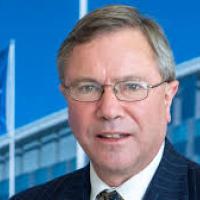
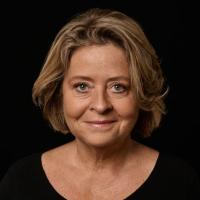

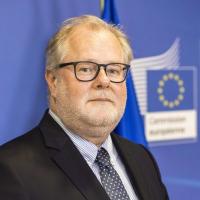
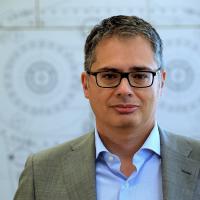
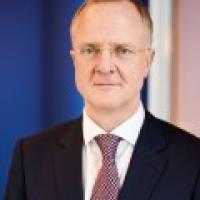
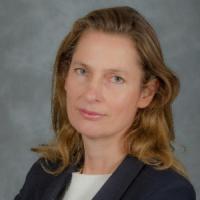

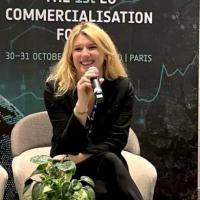
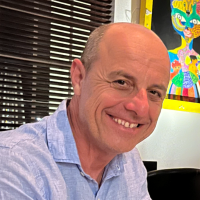
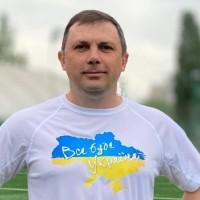
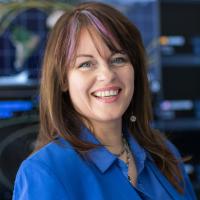
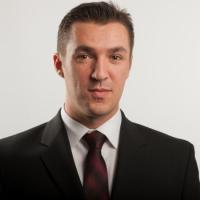
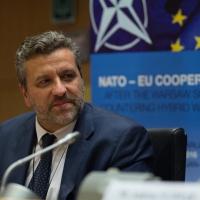
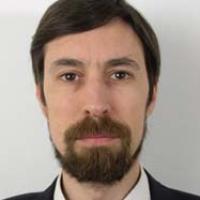

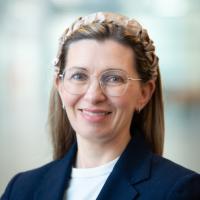

09:30 REGISTRATION AND BREAKFAST
10:15 Welcome by Maryline Fiaschi, CEO, Science|Business
10:30 PLENARY SESSION
On high alert: How to define defence tech strategy and policy in an increasingly volatile world?
In the past decade, the foundations of the post-Cold War order have become increasingly unstable, shaken by – among others – Russia’s aggression towards Ukraine, China’s rise as an economic and military power, the prospect of diminished US support for NATO, and the emergence of more extreme political movements here in Europe. Given the levels of geopolitical unpredictability and speed of technological development, how can leaders prepare for the future, and in particular define the offensive and defensive technologies they will need to face the unexpected?
Speakers:
• Bryan Wells, Chief Scientist & Chair, Science and Technology Board, NATO
• Michalis Ketselidis, Senior Expert, Defence Industry and Space, General Secretariat, European Commission
• David Luengo, Director Brussels Office, Indra
• Michael Froneberg, Head of NATO and EU Relations, KNDS
11:30 COFFEE BREAK
12:00 PLENARY SESSION
Health security: Turning strategic autonomy into a driver of innovation?
During the pandemic, Europe learned the hard way how dependent its health and life sciences industry was from other parts of the world. The security of the old continent also requires a stronger, more autonomous health sector. Another takeaway from the pandemic is the importance of European biotechs and universities as key drivers of innovation for vaccines and treatments. Today, Europe has a unique opportunity to capitalise on the aftermath of COVID to strengthen its health R&D pipelines and secure the supply of medicines it needs. What are the health supply chain vulnerabilities Europe needs to address? Where should public and private investments go not only to prepare for future pandemics but also in the long run, to better translate Europe’s scientific excellence in health into the innovations it needs to enhance its competitiveness, resilience, and security? How to ensure Europe’s vibrant innovation ecosystem(s) get the necessary support to secure access to life-saving treatments, as well as economic prosperity?
Speakers:
• Stine Bosse, Member, European Parliament
• Wolfgang Philipp, Principal Adviser and Chief Science Officer, DG HERA, European Commission
• Michele Mestrinaro, Global Head, Policy and Growth, Novartis
• Yannick Morel, Project Director for Stockpiling Strategy, Directorate General of Health, Ministry of Health, Government of France
• Łukasz Pronicki, Head, Sponsor Support Center, Medical Research Agency, Government of Poland
Supported by Novartis
13:00 LUNCH
14:00 PLENARY SESSION
Open access: What does the future hold for international cooperation in defence and security R&I?
Since the current European Commission took office in 2019, one of the defining mantras surrounding R&I policy has been “open where possible, closed where necessary”. At the beginning, this was largely limited in practice to haggling over access to R&D programmes in sensitive areas (like quantum or space) for the UK, Switzerland and Israel. Yet with the geopolitical landscape so volatile, and competition rising so quickly in critical tech domains, there is a sense that Europe will need to hug its allies even closer in the years to come. So what does that mean for science and tech policy, and models of international cooperation with non-EU companies and R&D organisations that may be essential to its future security? Is “closed where necessary” still relevant, or does Europe have to rethink who gets to play and where in its R&I programmes?
Speakers:
• Liam Benham, President, EU, NATO and Government Affairs, Boeing International
• Julie McCann, Vice-Dean for Research and Head, Adaptive Emergent Systems Engineering, Imperial College London
• Nynke Tigchelaar, Head of Unit, European Defence Fund Implementation – Defence Technologies and Innovation, DG DEFIS, European Commission
14:50 PLENARY SESSION
Invisible threats: How will Europe’s digital security priorities define future R&I agendas?
As highlighted by the recent IT systems collapse and crisis – not to mention years of confronting Russian-generated hacks, online hostilities and electoral interference – cybersecurity is a non-negotiable aspect of Europe’s future defence and security strategy. Yet the dimensions of cyber threats are manifold, and the weaknesses in EU-wide, national and sector-specific systems are numerous – amplified by the fact that almost every organisation and individual is digitally connected nowadays. In this messy, risk-laden environment, where should the EU prioritise its future R&I cyber strategy? To which degree can tech giants and disruptive innovators inform policy choices and support flagship programmes? Which are the critical technology gaps which need to be filled? And what role for research organisations themselves in ensuring a highly functioning, interoperable European cybersecurity umbrella in the years to come?
Speakers:
• Kia Slaebaek Jensen, Counsellor for Cyber Security, Permanent Representation of Denmark to the EU
• Irina Kupiainen, Director for Public Affairs, CSC – IT Center for Science
• Dan Nechita, Founding Partner, Vanguard Europe
15:30 COFFEE BREAK
16:00 SPOTLIGHT INTERVIEW
Brothers in arms: How can European R&I help Ukraine in its fight for survival?
In line with other types of political and financial backing, the EU and member-states have made many efforts since 2022 to support Ukraine’s science and education communities, not least in terms of hosting researchers and enabling Ukrainian organisations to ‘hop on’ to certain EU-funded R&I projects. Yet as the conflict grinds on, do these measures align with what Ukraine itself sees as its critical R&D challenges, both immediate and longer-term? Given the urgency, can Ukrainian organisations afford the time required to secure typical FP grants? And in the wider context of continental defence and security, what more can Europe do to ensure that Ukraine has access to the science and tech it needs to defend itself?
A live Q&A with:
• Vitalii Cherniuk, Head, Innovation Development Policy Expert Group; expert, Ukrainian Defence Tech Cluster, Government of Ukraine
16:20 PLENARY SESSION
The road ahead: What implications for defence and security R&I within the EU’s next strategic mandate?
With defence and security issues set to attract considerable political attention – and, in all likelihood, significant funding – during the next mandate, the implications for R&I are also potentially huge. While Horizon Europe legislation precludes formal support for non-civilian research, the pressure will be on to find smart ways to align Horizon-funded outcomes with other key programmes and interests, not least through its civil security cluster under Pillar II. Regardless, the time will soon come for the European Council to decide on a new defence and security financing model, and for the Commission to start drafting its ideas for FP10, as part of the overall parameters for the EU’s next budget cycle (2028-35). So what needs to change from today’s status quo to make Europe’s def-sec R&I strategy fit for purpose in the long run? And perhaps more importantly, can the resources be found to meet the EU’s real-world needs and societal expectations?
Speakers:
• Luca Bedon, Head, Research & Technology, Avio Aero
• Catherine Bender, Head, Security and Defence Office, European Investment Bank
• Signe Ratso, Deputy Director-General, DG RTD, European Commission
17:00 END OF CONFERENCE
ACE events
Av. d'Auderghem 22, 1040 Bruxelles
Please note that on 17-18 October 2024 a European Council meeting will take place in Brussels.
As ACE Events is located within the first security perimeter it will remain accessible but some restrictions will apply.
For more details, please refer to the enclosed PDF.
Download the event pack here
Partners

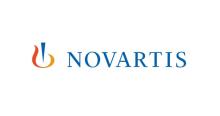


 A unique international forum for public research organisations and companies to connect their external engagement with strategic interests around their R&D system.
A unique international forum for public research organisations and companies to connect their external engagement with strategic interests around their R&D system.